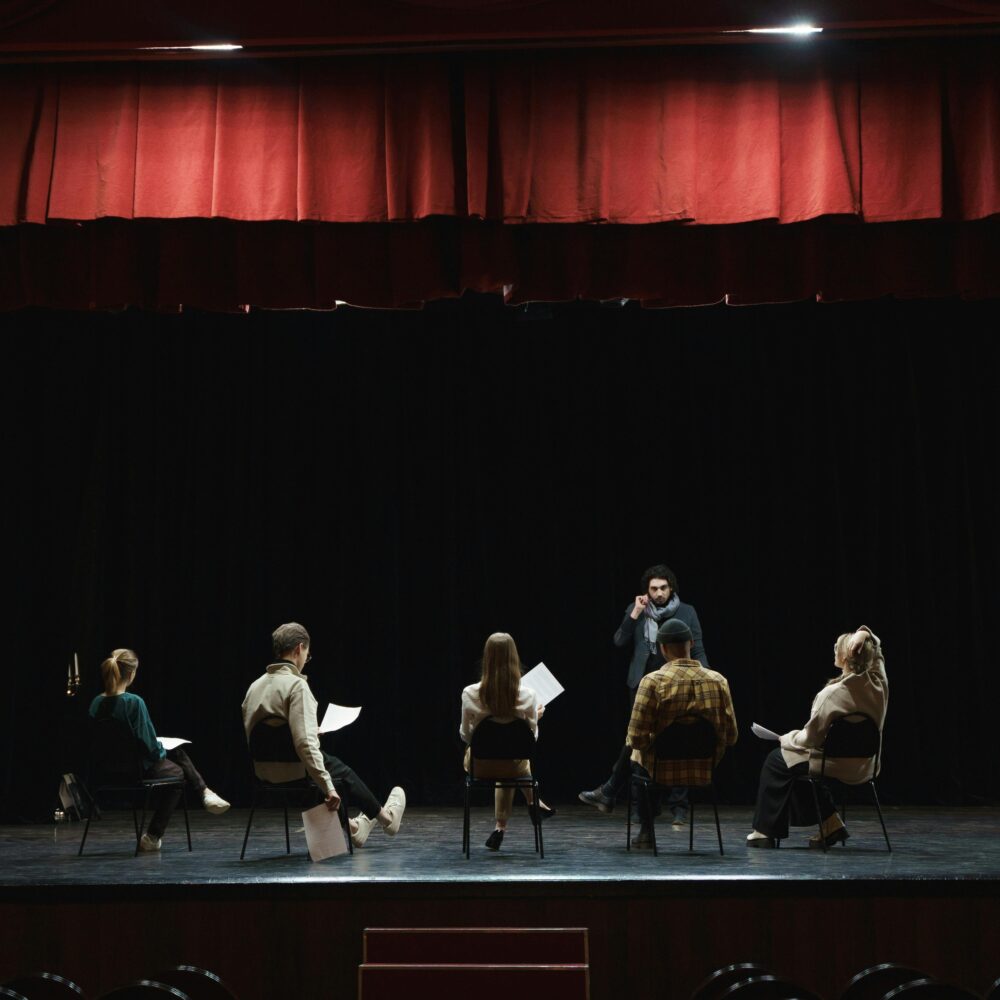


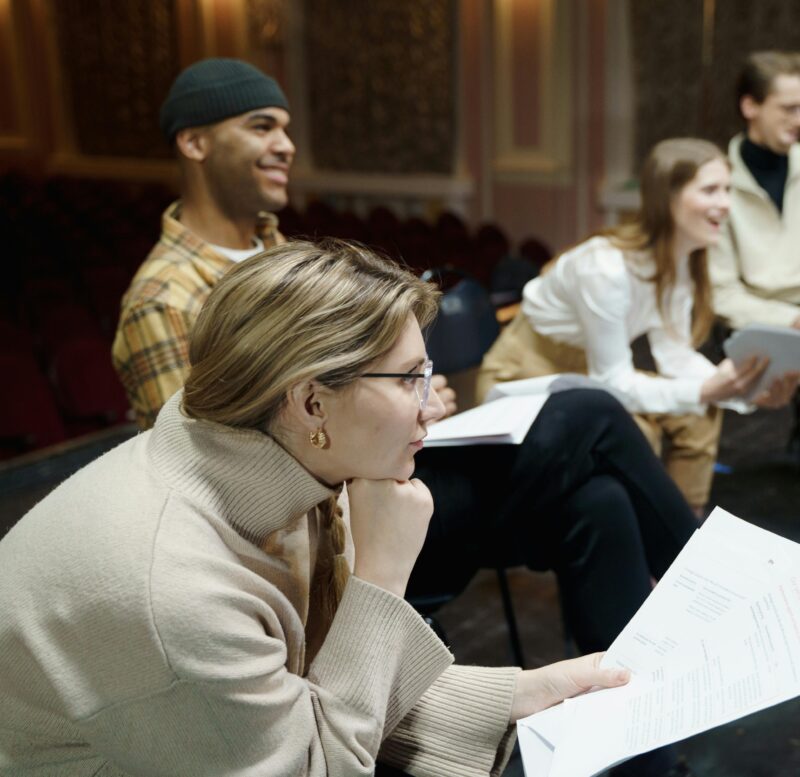
At Art with Heart, we try and be upfront about finances. We’ve had conversations about timing payments so an ad-hoc job didn’t impact a freelancer’s benefits and leave them worse off, with people who are leaving freelancing because they cannot afford extortionate childcare costs, and those who just could no longer afford to keep chasing low paid work, which often pays late.
We wanted to formalise those conversations, so we launched a Late Payment Survey to freelancers and venues to try and work towards bridging the gap and providing suggestions to ensure prompt payments. Sarah reflects on those responses.
At a time when everyone is financially feeling how tough it is, freelancers are some of the most impacted. Buildings are prioritising keeping the lights on, funding pots are being diverted, and funding doesn’t stretch as far as it used to. Many creative freelancers, especially those who are working class or benefit class, are leaving freelancing to find more predictable, stable work often outside the creative sector. For those with absolutely no safety net to fall into, like Care Leavers, I imagine freelancing is not even an option.
It’s January 2024, tax bill paying time. I either didn’t earn enough or was on the dole for a long time. The first year I paid tax, I felt so proud that I had passed that threshold and could pay into the system that me and my family had benefitted from so much throughout my life. But in 2024, the service and system I pay into don’t feel the same. The dole was our security net, but Universal Credit provides a much smaller net. And now freelancers are not just paying my tax, but forward paying tax ahead for the potential money they will hopefully earn!
As freelancers, we spend a lot of time unpaid looking for the next job, networking, applying, fundraising and chasing payments; our income comes from so many different sources and different job roles, it’s a job in itself to keep on top of the admin.
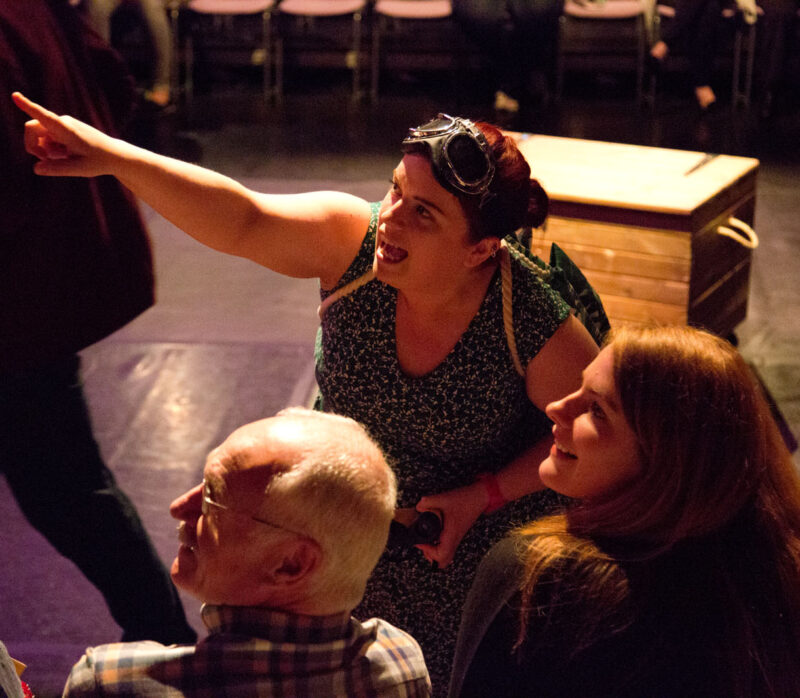
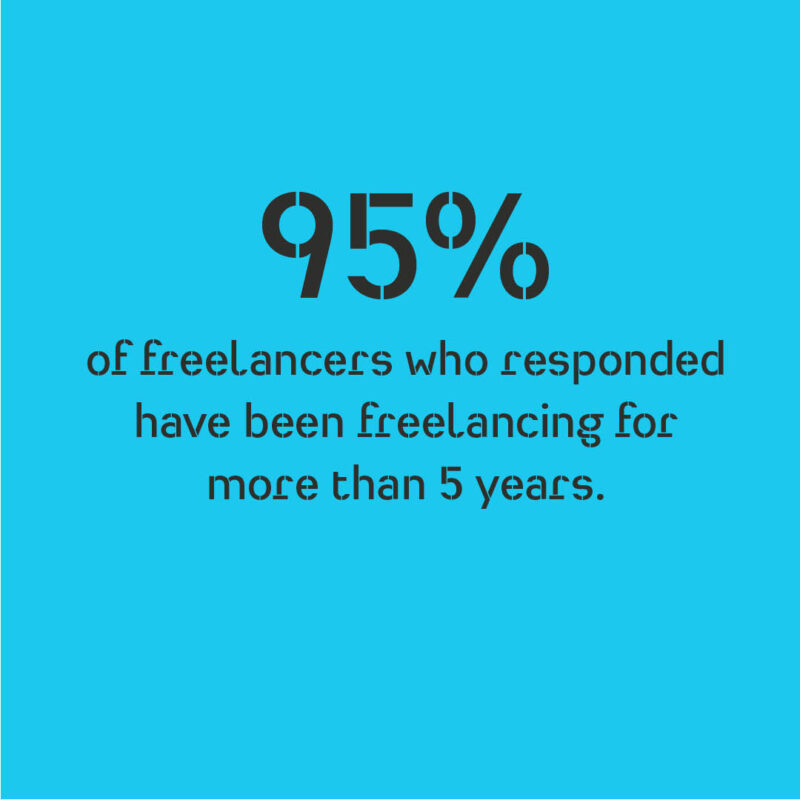
95% of freelancers who responded have been freelancing for more than 5 years and 50% identify as working class.
Responses highlighted how it has become usual to have a salaried role alongside your freelancing work due to how precarious the industry is, but that it impacted the quality of their work ‘The stress caused by not having funds we should have access to makes creative work infinitely more difficult, often people have to forgo work opportunities to make art and when those payments don’t come in time the work suffers’. Often when making your own work as micro organisations, cashflow is non-existent, freelance makers told us they used ‘personal credit cards to cashflow your own creative work and pay others on time whilst you wait from payments for bigger organisations’.
Freelancing jobs can vary from an ad-hoc day in a school, to months working in an arts centre. ‘Freelancing is often unpredictable and irregular by its very nature, so when projects aren’t complete and payments aren’t received when initially expected, or timelines slip, this can add a lot of stress, not always knowing for certain when you will get paid, particularly when it comes to larger projects’. Sometimes project timelines move to make sure they are the most useful for audiences and participants, but these changes also impact payment timings; ‘when a project timeline extends beyond what was agreed or expected can have a considerable knock on effect to when payments are made. The slipping of a timeline can also have a financial impact if it means turning down other work’.
Many freelancers mentioned savings – either to note that ‘cashflow was a very delicate balance and working as a freelancer in the arts means that savings don’t exist’ or for those who did have them, they said it was unfair that they lost any interest they would’ve received as they had to use them as cashflow whilst waiting for payments.
In my 20s I really relied on housemates (my parents didn’t have money to lend), sometimes they would shout me my tea, or I’d skip meals to make sure I could contribute to rent and bills. That was over a decade ago, and the climate is much more precarious now.
For most responders, it was less about juggling cashflow and more about delaying personal bills to stay afloat – using debt as a means to cope ‘when payments are late, I panic that I can’t pay my rent or bills, it occupies quite a lot of my brain space and has an impact on my other work. It also means that I have to cut back on really basic spending – like walking/cycling to work instead of being able to afford public transport, even in absolutely terrible weather, and just simple things like having to say no to any social activity’ and for some it meant being in arrears on bills, being fined for late payments and ‘missing rent payments, being without food for days’.
Freelancers told us that they have borrowed money from their networks ‘I’ve been known to borrow money… bridging loans from friends and family’, and credit to bridge the gap ‘I had to use my credit card to pay for my outgoings and it meant that I had to accrue interest’.
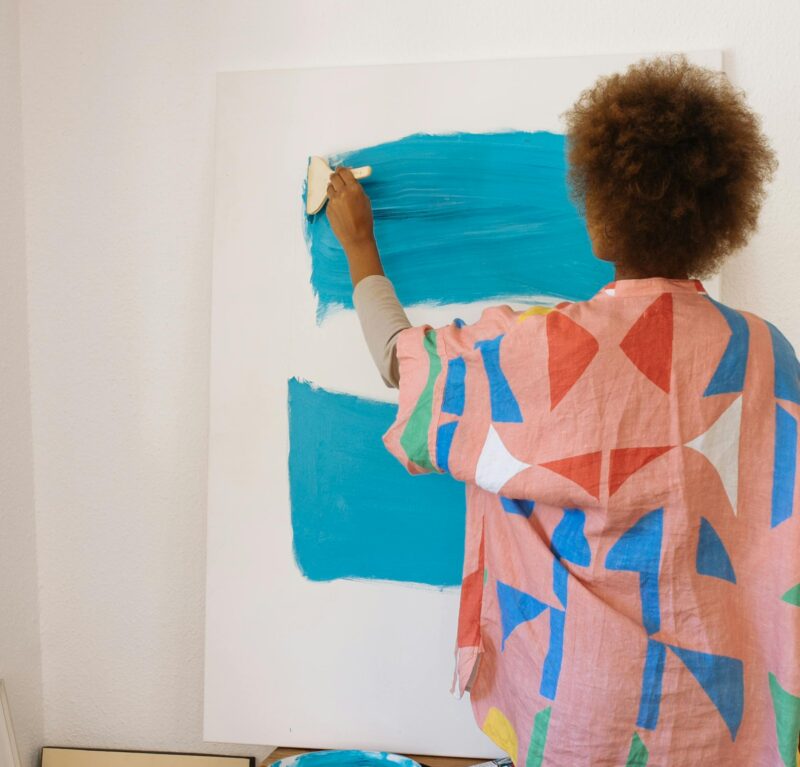
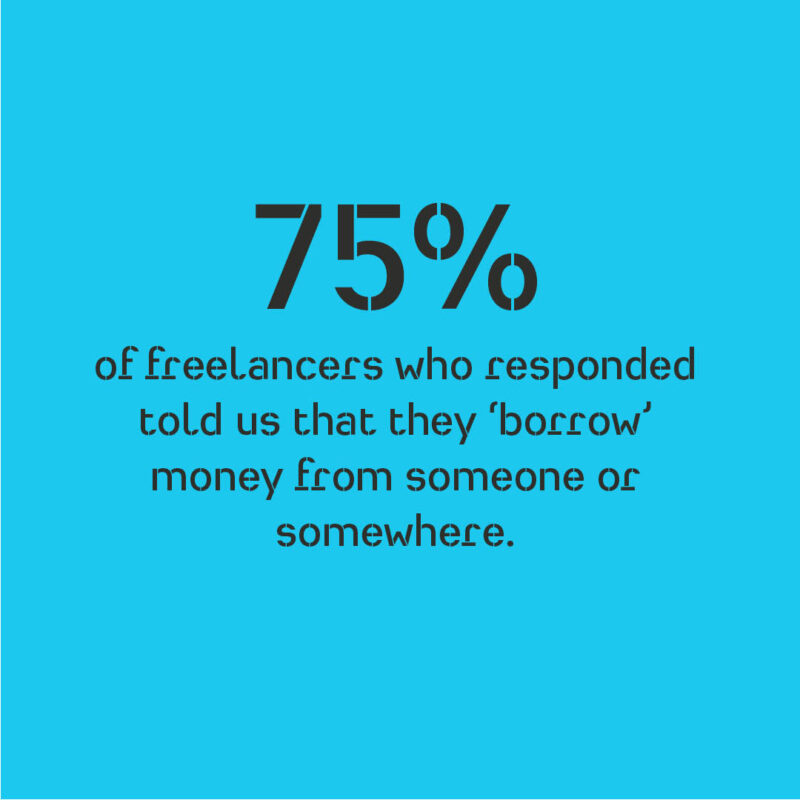
The chasing of payments without a clear picture of when payment will be made causes a lot of stress. Respondents said they didn’t like to ‘sour relationships’ or be seen as ‘causing a fuss’ so worried about talking to venues. Freelancers found it frustrating that they had to ‘use your time chasing money rather than being creative, as already time poor, under-resourced people’ and that when they were working for big organisations they were often ‘passed from person to person, in different departments which feels like a delaying tactic’. Frustrations were also felt when a month had passed and ‘to find out it’s a technicality that nobody has proactively contacted you about but waited for you to chase so you can be told e.g. postcode is wrong, or you need a PO number’. They also cited that the additional admin of having to constantly chase payments led to the ‘feeling of being unvalued. Feeling of being disrespected by those on a salary’.
75% of freelancers who responded told us that they experienced a negative impact to their mental health and wellbeing due to the stress and anxiety from late payments.
Stress and anxiety featured heavily in the responses and that ‘the biggest impact of this is stress’, ‘mentally it is very draining, stressful and frustrating. It basically puts your life on hold’. For those who aren’t freelance, you could maybe assume that this is just a one off, or maybe once a year, but this is regular for freelancers. One survey responser told us ‘as a freelance artist I would say that about 50% of my invoices are not paid on time’.
As well as freelancers, we asked those who are working inside cultural organisations to offer their thoughts. The survey was anonymous and responses were really honest with reflections on how they can do better.
The main responses for invoices not being paid were if freelancers provided ‘insufficient information’, for example ‘do not supply the UTR (Unique Tax Reference) number’ or has not completed a new supplier form or had changed their bank details.
Venues reflected that long payment periods are detailed in contracts but that this might not be front and centre, along with internal politics about signing invoices off and non-communicative finance departments. One reflected ‘more commonly the culprit is venue staff being so stretched and overworked that they start to miss things’. Another, who has recognised the need for prompt payment has implemented weekly payments ‘so freelancers will be paid generally the same week as invoicing if not certainly by the following week’; although this positive action seems to be the exception to the rule.

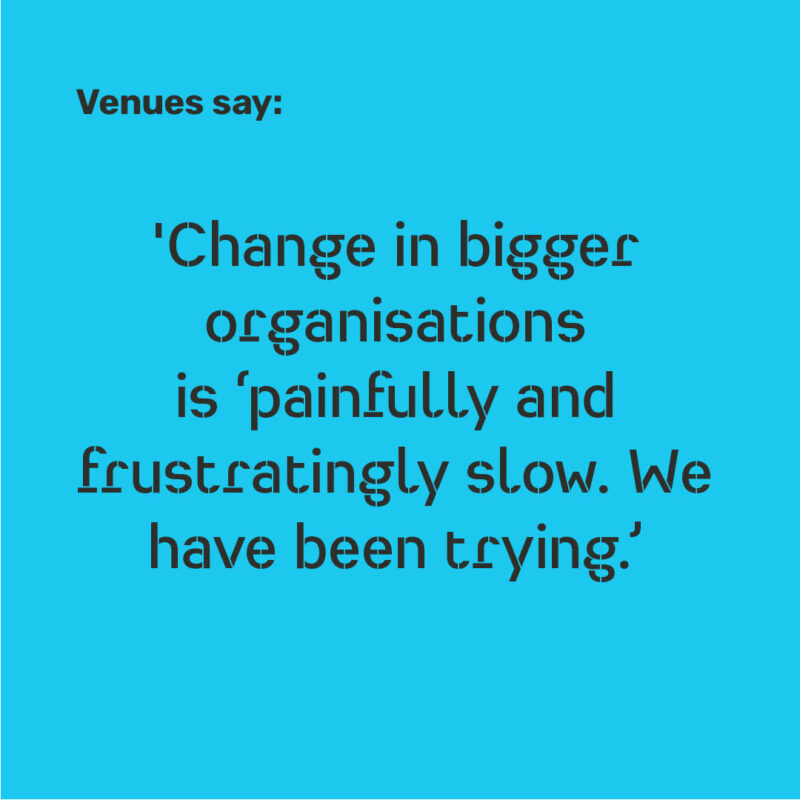
Venues noted that they would be open to negotiating when payments are made, one said ‘we are open to discussing what works best for the individual’, although usually they are made either on completion, weekly or monthly. Some noted that they were trying to make changes, for their invoicing systems to prioritise freelancers, to make initial payments up front, but that change in bigger organisations is ‘painfully and frustratingly slow. We have been trying’.
My fear is, that if we don’t make changes soon, we are going to lose the backbone of the creative industries as being freelance becomes less and less of a possibility for people. In Greater Manchester we’re already feeling the impact of the loss of freelancers leaving a gap in skills, we need to act now before we lose any more!
We always wanted this survey to be about making positive changes and suggestions, so we would love to see the following suggestions implemented across Greater Manchester cultural venues:
